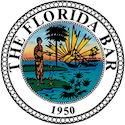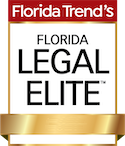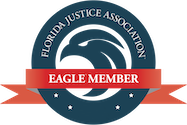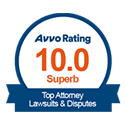Car Accident Legal Questions
It is important to point out that insurance companies are businesses designed to make a profit and, as such, they do their best to minimize payment of insurance benefits. This is the primary reason we strongly encourage accident victims to seek the expert assistance of an attorney who limits their practice to injury law.
Let an experienced personal injury attorney, who will represent your interests, advise you before you make any decisions.
What should you do following an auto accident?
DO:
- Call police (& medical if necessary) – 911
- Move vehicle out of the way of traffic (if possible).
- Set flashers to warn other traffic
- Report any pain or injury to police for their report
- Get names, contact information & insurance of other party
- Get names, contact information of any witnesses
- Get copy of police report (short form), case #, Officer name & badge # and police department
- Call your insurance company to report accident
- Call Harrell & Harrell – we are available 24/7 and can help with many of the details:
904-251-1111 – 800-251-1111
DO NOT:
- Attempt to move seriously injured victims
- Give any formal report to your insurance company or other party’s insurance company until approved by your attorney
- Sign any release without your attorney’s approval
PICTURES:
- All injuries and injured areas
- Both vehicles – Various distances – Show damages clearly
- Skid marks in relationship to vehicles (if possible)
- Intersection or area of accident, including signage (street names, stop, etc.)
(Take as many as you can if you have a camera or a cell phone camera)
Remember that the police report, and any tickets, are not admissible in a court of law in FL
FAQs – AUTO ACCIDENTS
Click on any question below to see the answer.
ANSWER: Florida is a “no fault insurance” state. Therefore, your own car insurance, under its Personal Injury Protection (PIP) provisions required under Florida law, is the primary or first to pay medical expenses.
Although PIP benefits can vary from policy to policy, typically 80% of your medical expenses up to $10,000 are paid by PIP. The “no fault” concept is designed to make sure your medical bills are quickly paid and an accident victim does not have to spend time and money fighting over who was at fault for the accident to get legitimate medical bills paid. These payments by your insurance company DO NOT affect your premiums.
If PIP benefits are used up, various types of health insurance and other programs may then assume responsibility for your medical expenses.
ANSWER: This is a complex area of the law. However, if you do not have PIP, there still may be PIP benefits available through the auto owner’s insurance, through another member of your household, or from other sources.
ANSWER: PIP will pay 60% of your lost wages until PIP benefits are exhausted.
ANSWER: Uninsured or under insured motorist coverage (UM) is available on your own personal auto policy for a small premium and is coverage EVERYONE SHOULD HAVE.
If somebody wrongfully causes an accident and you are injured and that person is uninsured or under insured, you can rarely collect or have limited collection for your injuries UNLESS you have UM coverage. UM is designed to pay you for your own injuries if the at-fault driver is uninsured or under insured.
Since it is estimated that 40% of the cars on the road have no meaningful insurance coverage, you stand a good chance of needing UM coverage if someone hits your car and injures you. As a result, UM is very important in Florida.
ANSWER: There is a general rule that the more serious the injury, the greater the compensation. However, a simple example can show how misleading this general rule may be. If your occupation is a concert pianist and you lose your little finger, the resulting injury is catastrophic. On the other hand, if you are a lumberjack, such a loss while regrettable is not nearly as catastrophic. In Florida automobile cases, you must have sustained a “permanent injury” to bring a claim for more than just your economic losses as a result of an auto accident.
No ethical or responsible attorney will give a final value to an injury from any type of accident until a client has received complete medical treatment and reached “maximum medical improvement.” Maximum medical improvement is that point in time when your doctors feel there will be no further improvement in your injuries.
However, while the valuation of a case involves an assessment of many interwoven considerations, an experienced attorney is able, fairly early in the case, to assess and establish the general parameters of an expected recovery based on many factors, such as:
> What is the liability?
> How much property damage occurred?
> What are your lost wages?
> Were you wearing seatbelts?
> Did you have any pre-existing medical conditions?
> What type of vehicles were involved in the accident?
> What does the attorney’s experience tell him or her about local verdicts?
> Are there insurance coverage issues?
> What are your future medical needs and how much will these needs cost?
>How has the accident affected your ability to earn a living?
Remember, valuation is as much an art form as it is a science and you should have an opportunity to thoroughly discuss all aspects of your case with your attorney before you decide what your case is worth. It is your injury and your case. Therefore, the final decision rests with you. As attorneys, we can only advise.
ANSWER: Insurance companies love to recommend a $2,000 PIP deductible and no uninsured motorist coverage. This is despite the fact that both recommendations are absolutely and unequivocally against your interests.
With a $2,000 PIP deductible you must pay the first $2,000 in medical bills out of your own pocket. This is not only very expensive, but many good doctors will not treat you under these circumstances.
Here at Harrell & Harrell, we recommend that you purchase PIP insurance and as much bodily liability insurance and uninsured/under insured motorist coverage as you can afford; but an absolute minimum of $50,000 of Bodily Injury Insurance and $50,000 of UM Insurance.


























